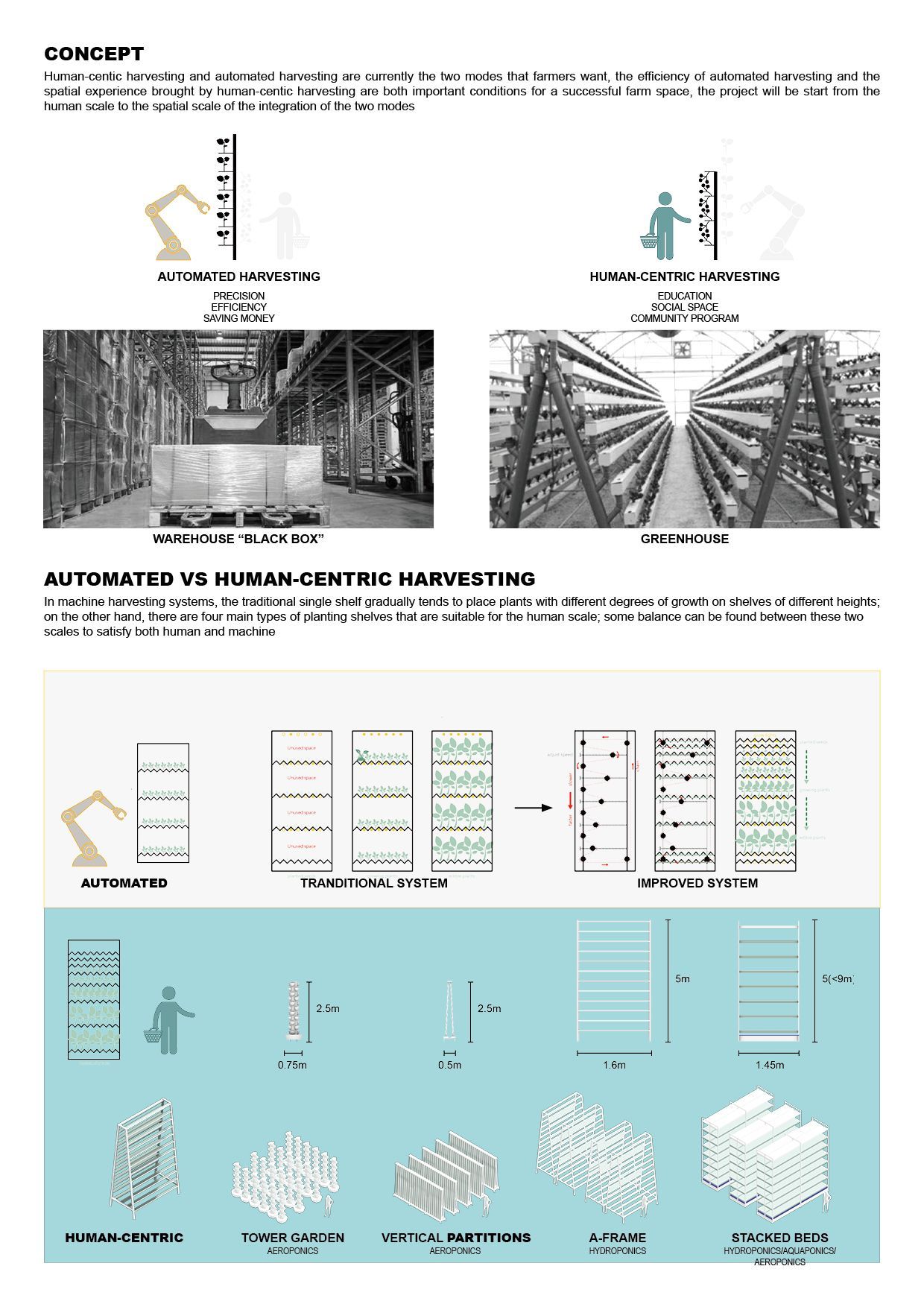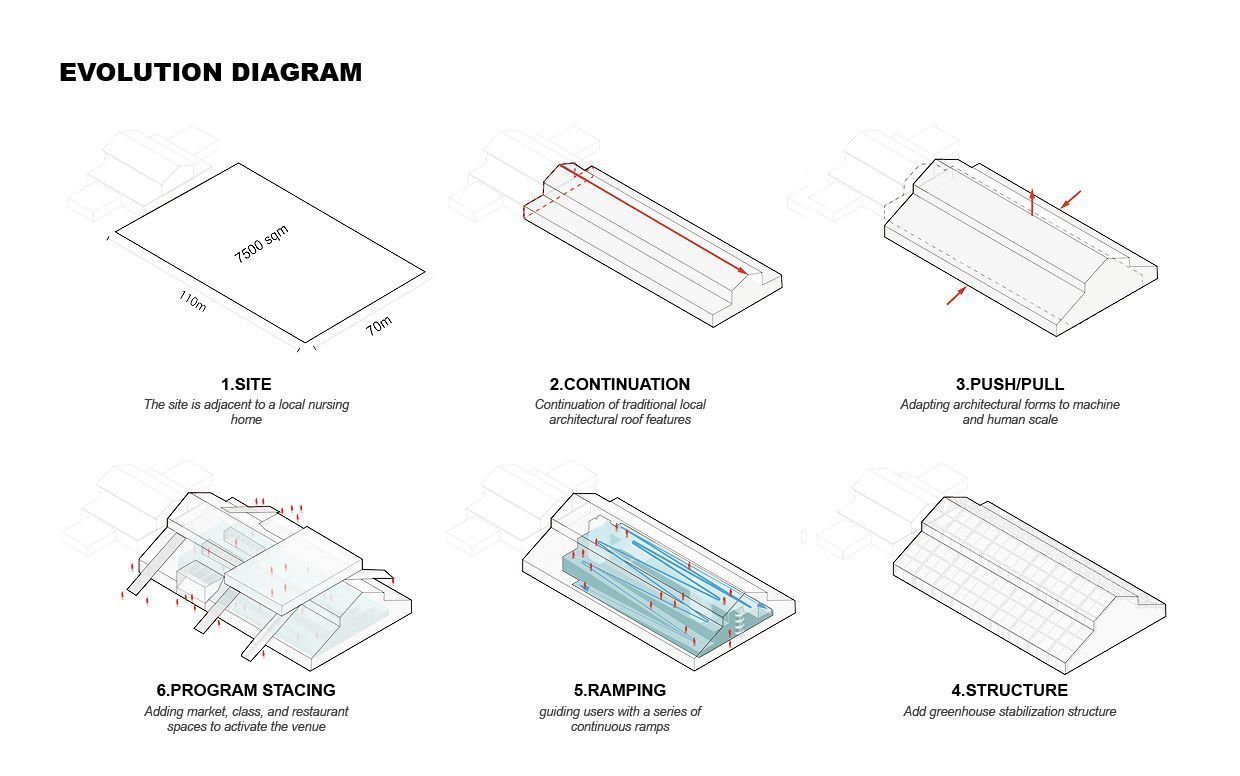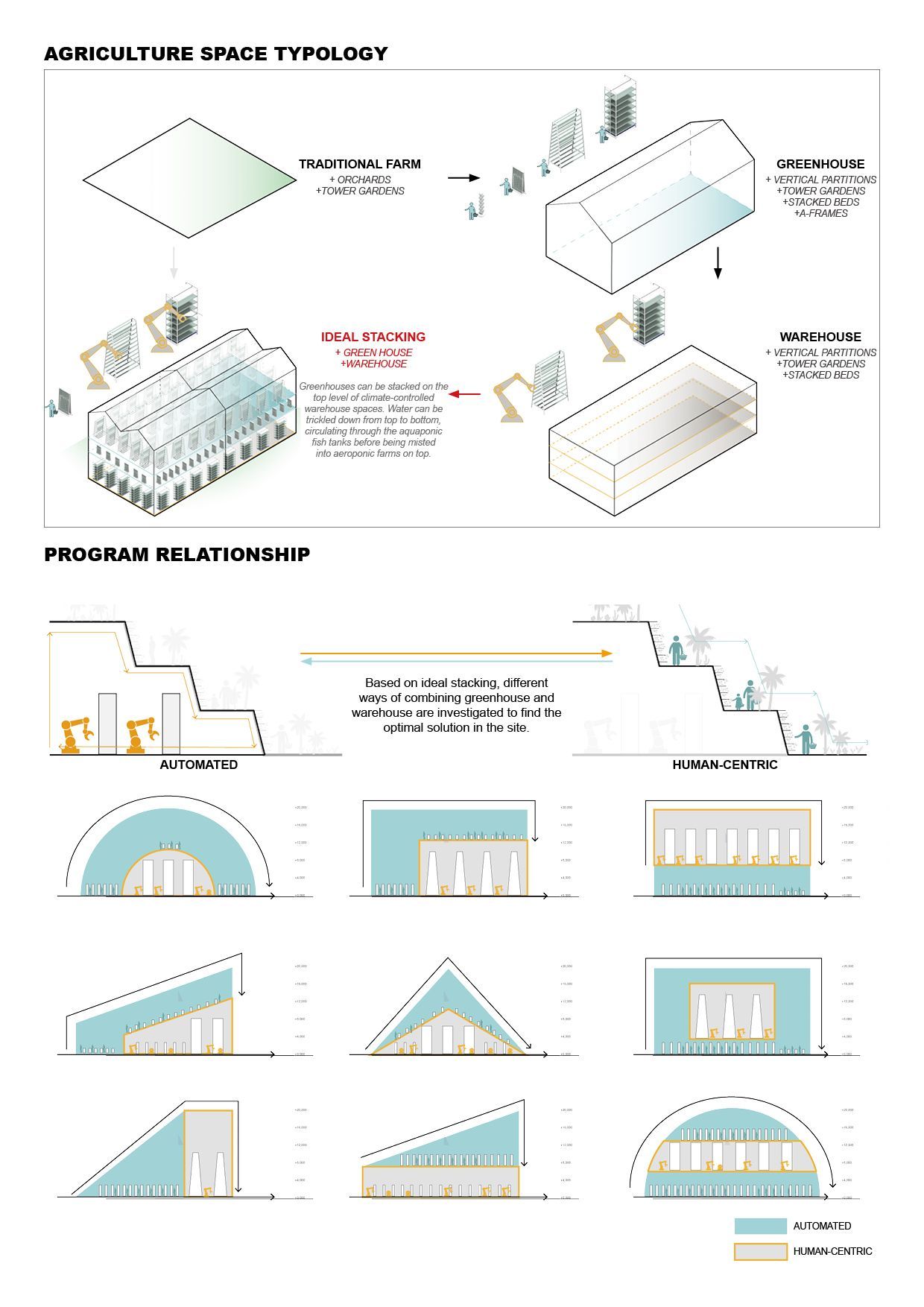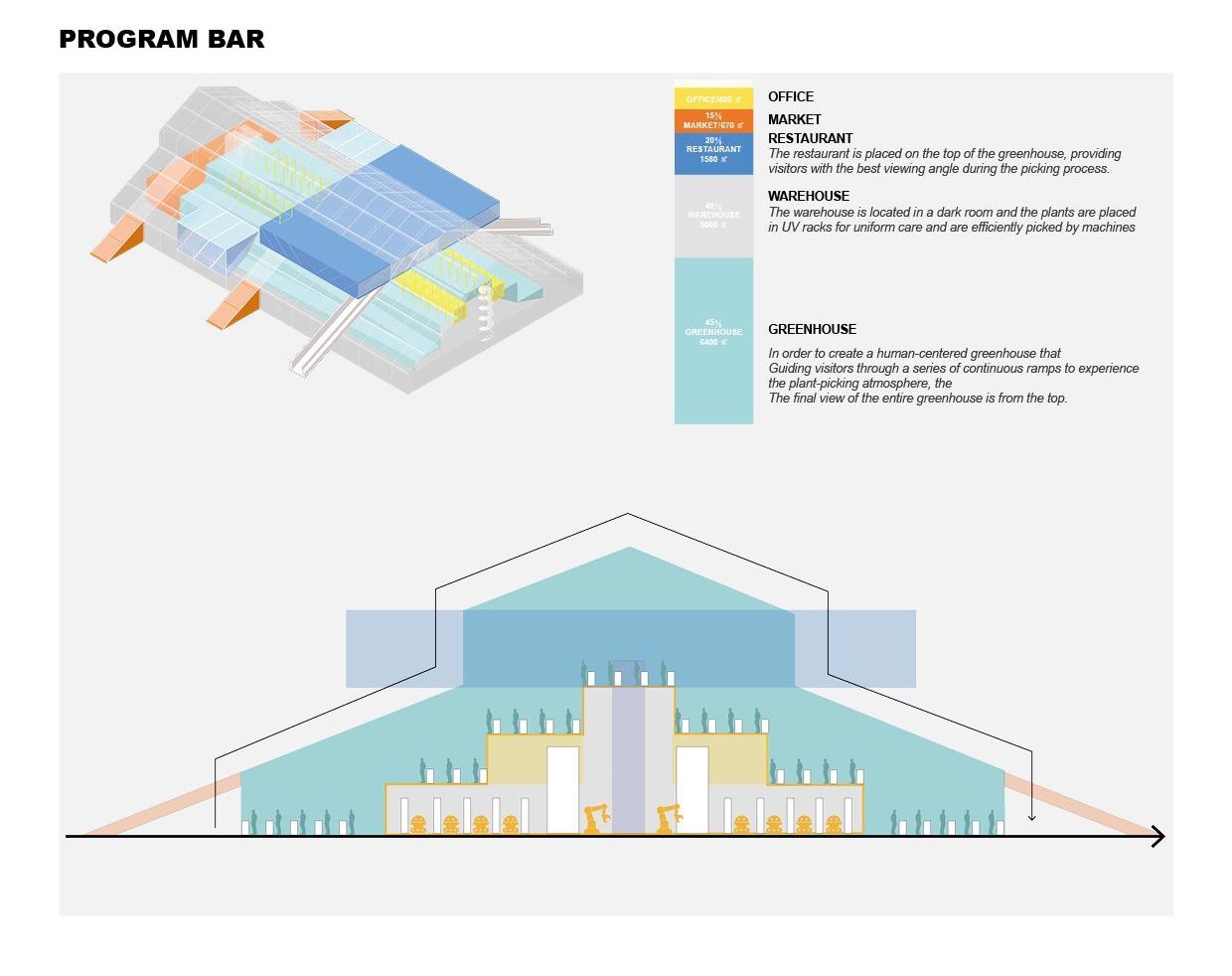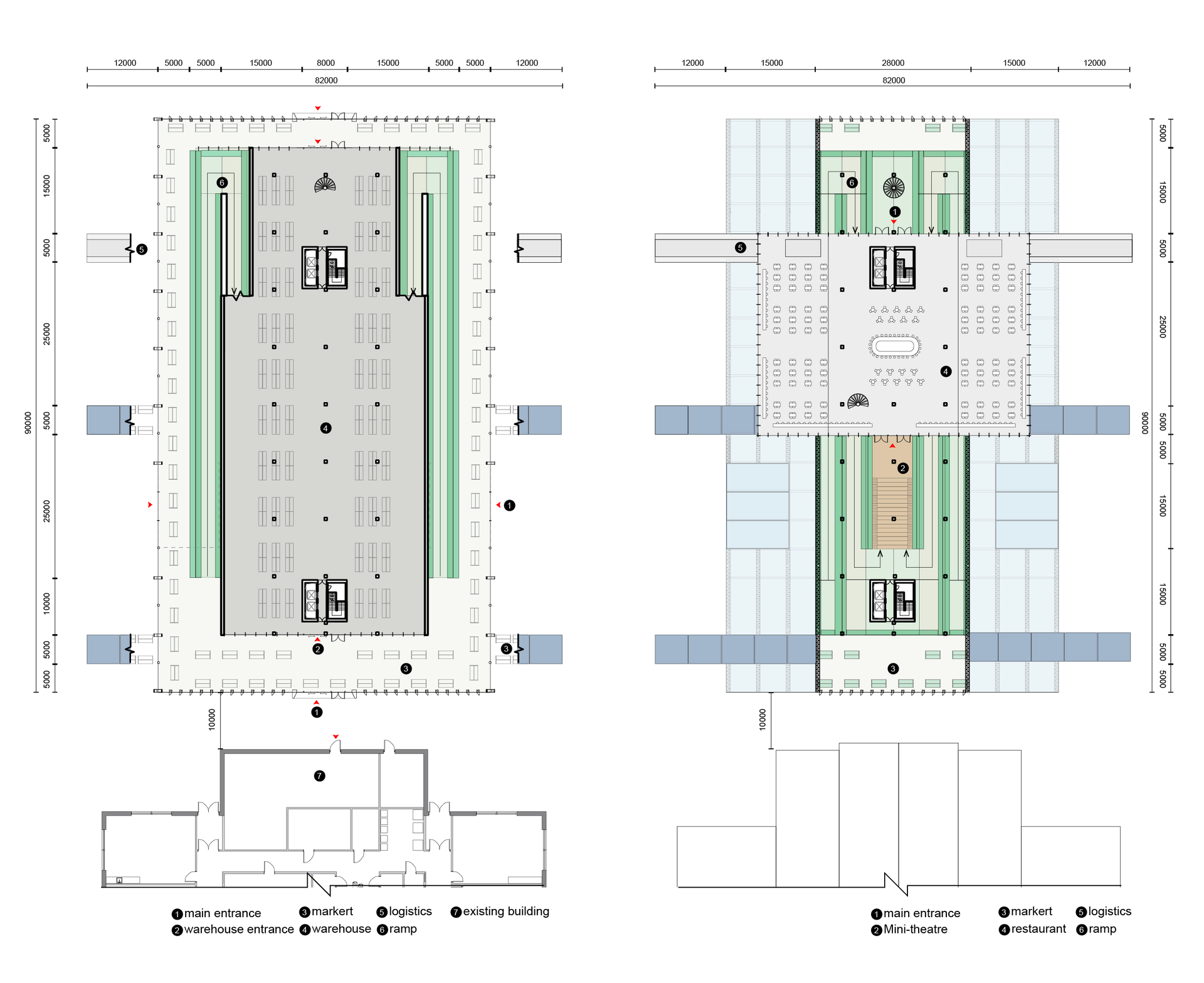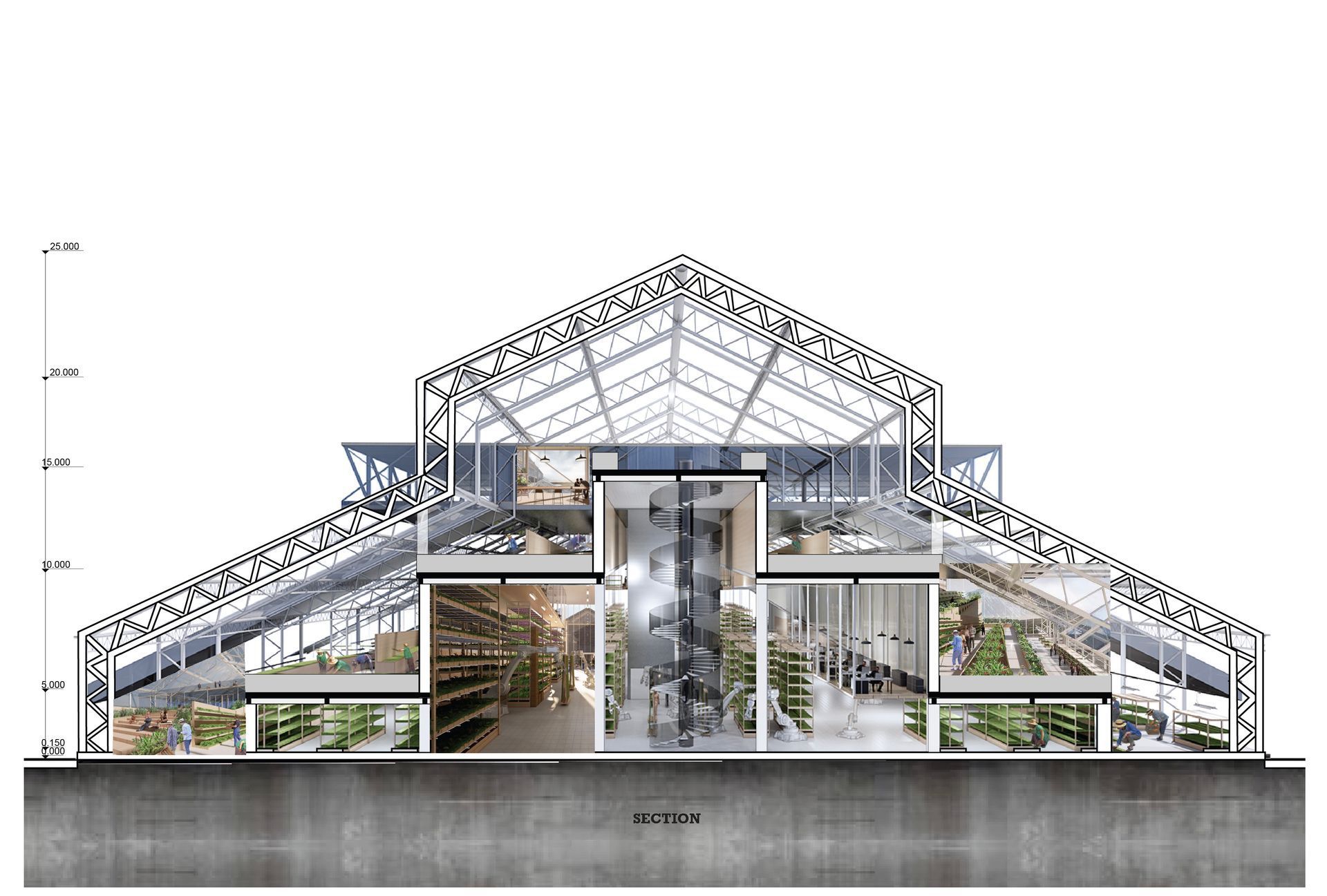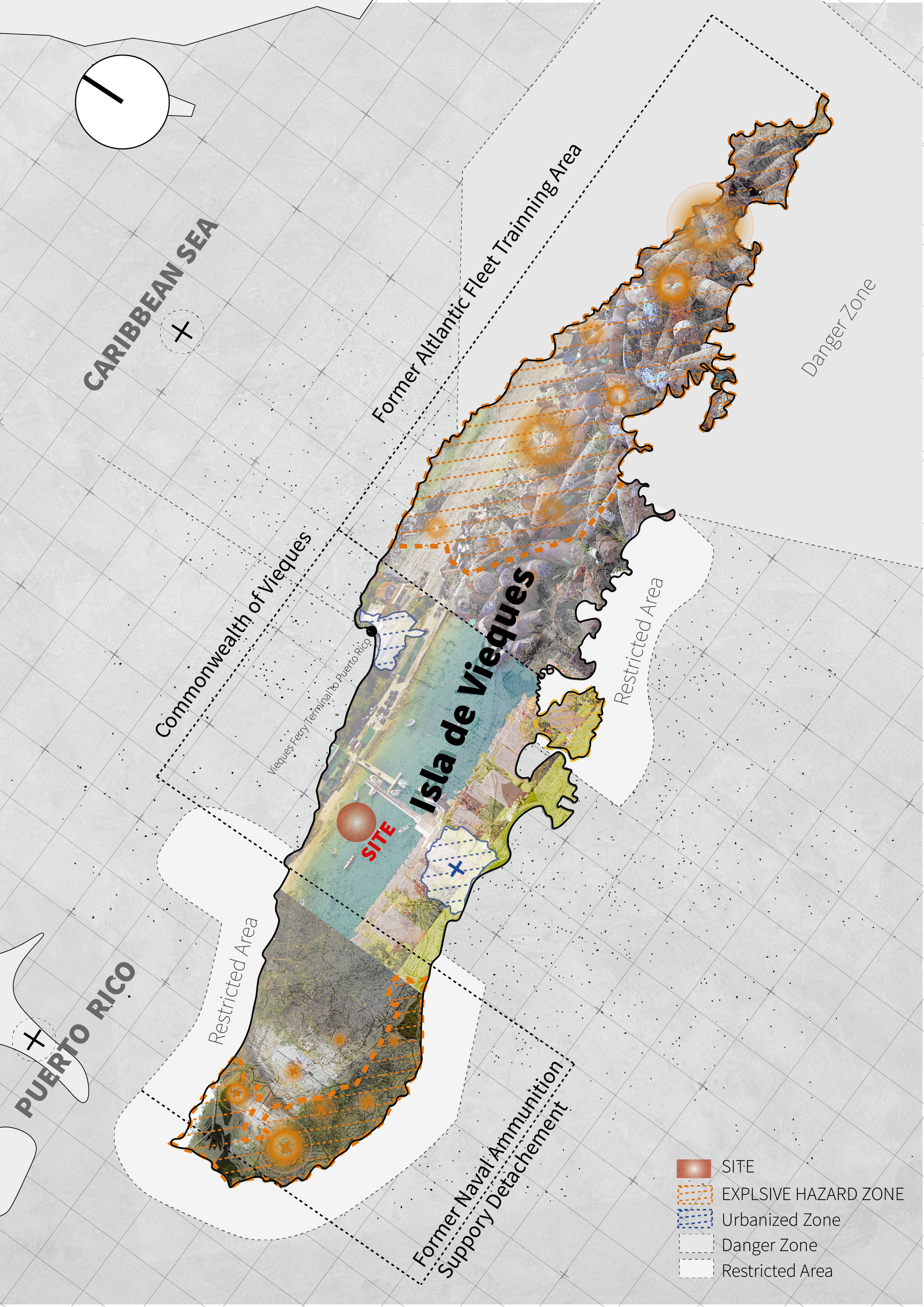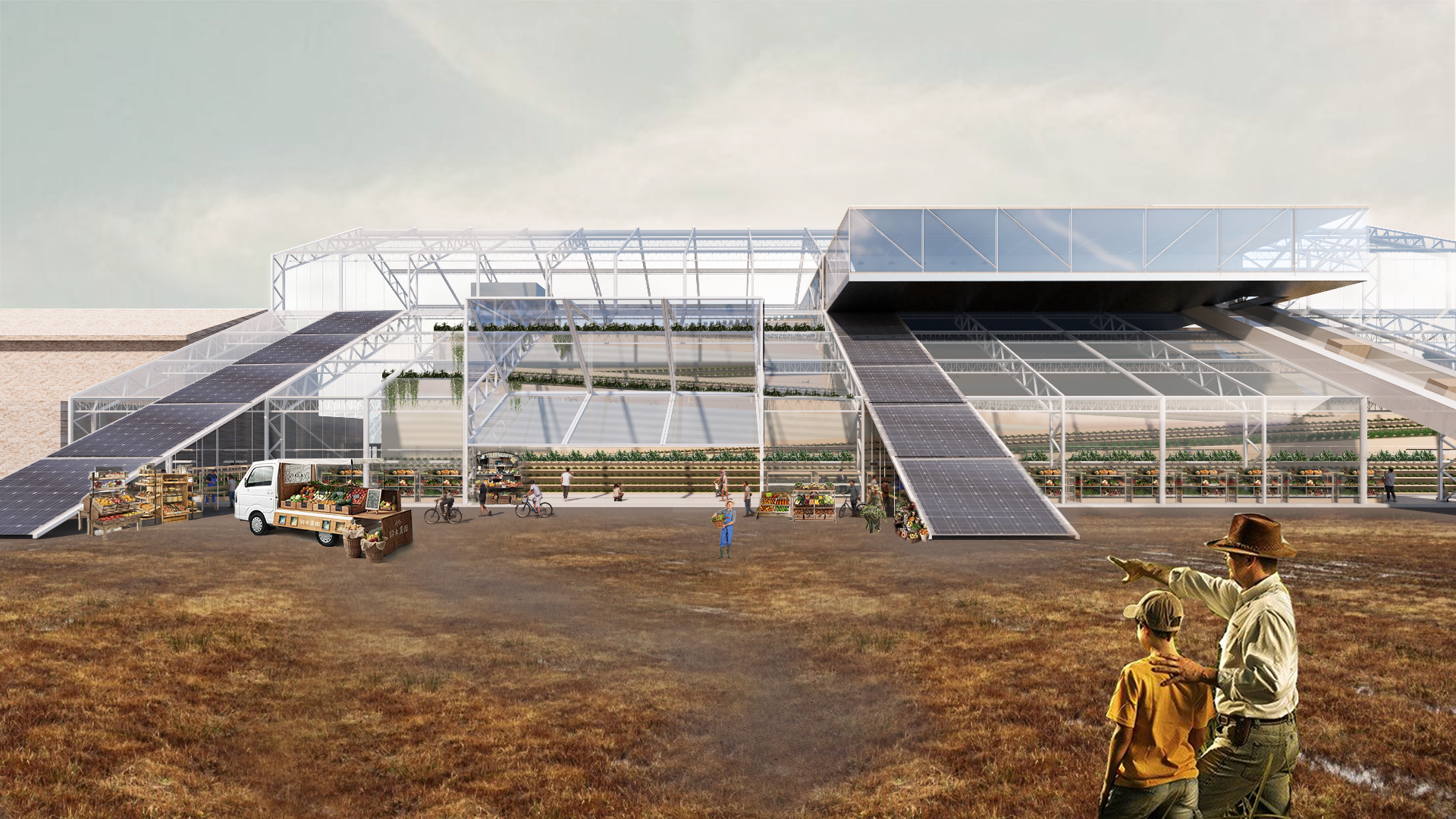
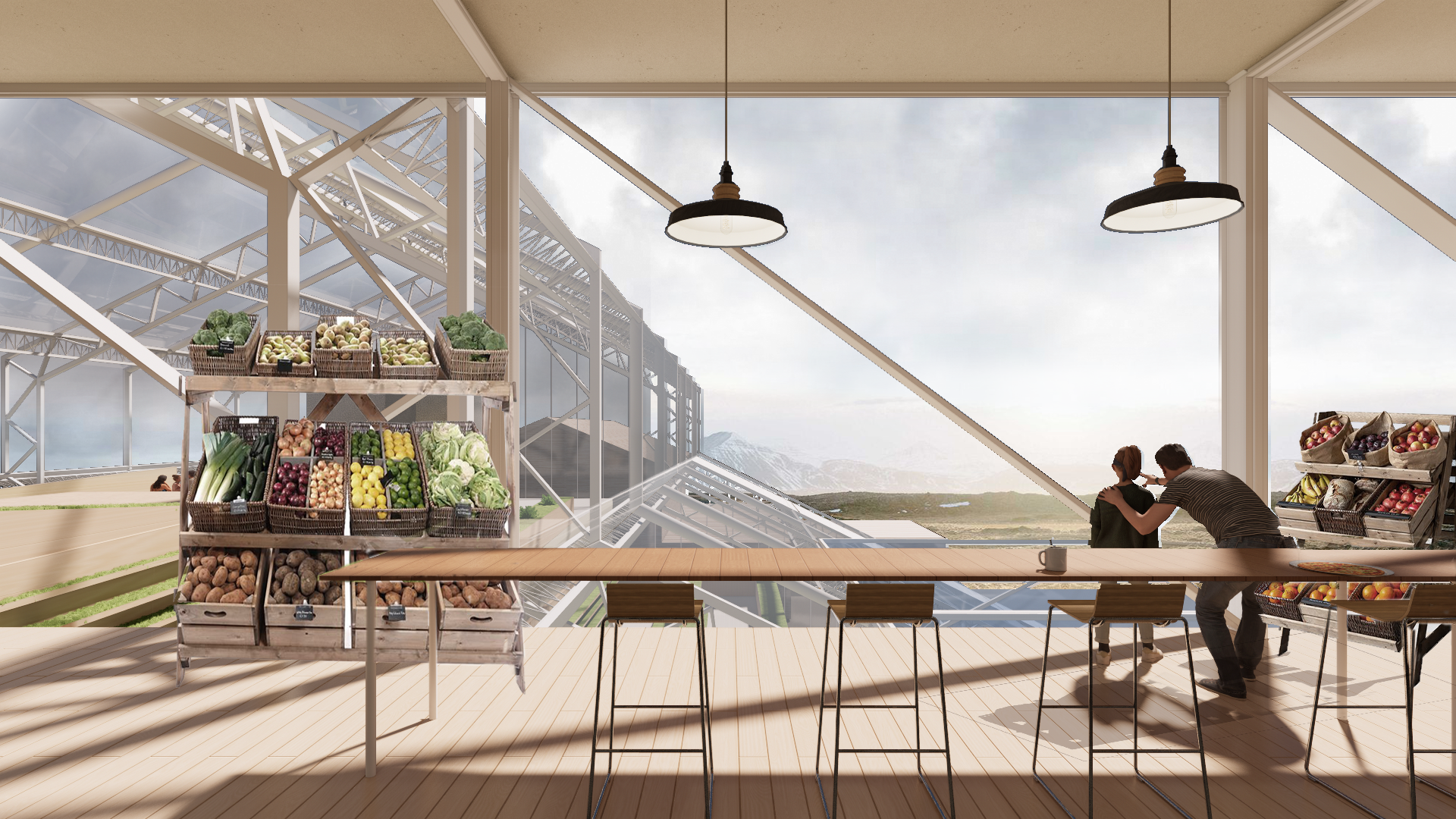
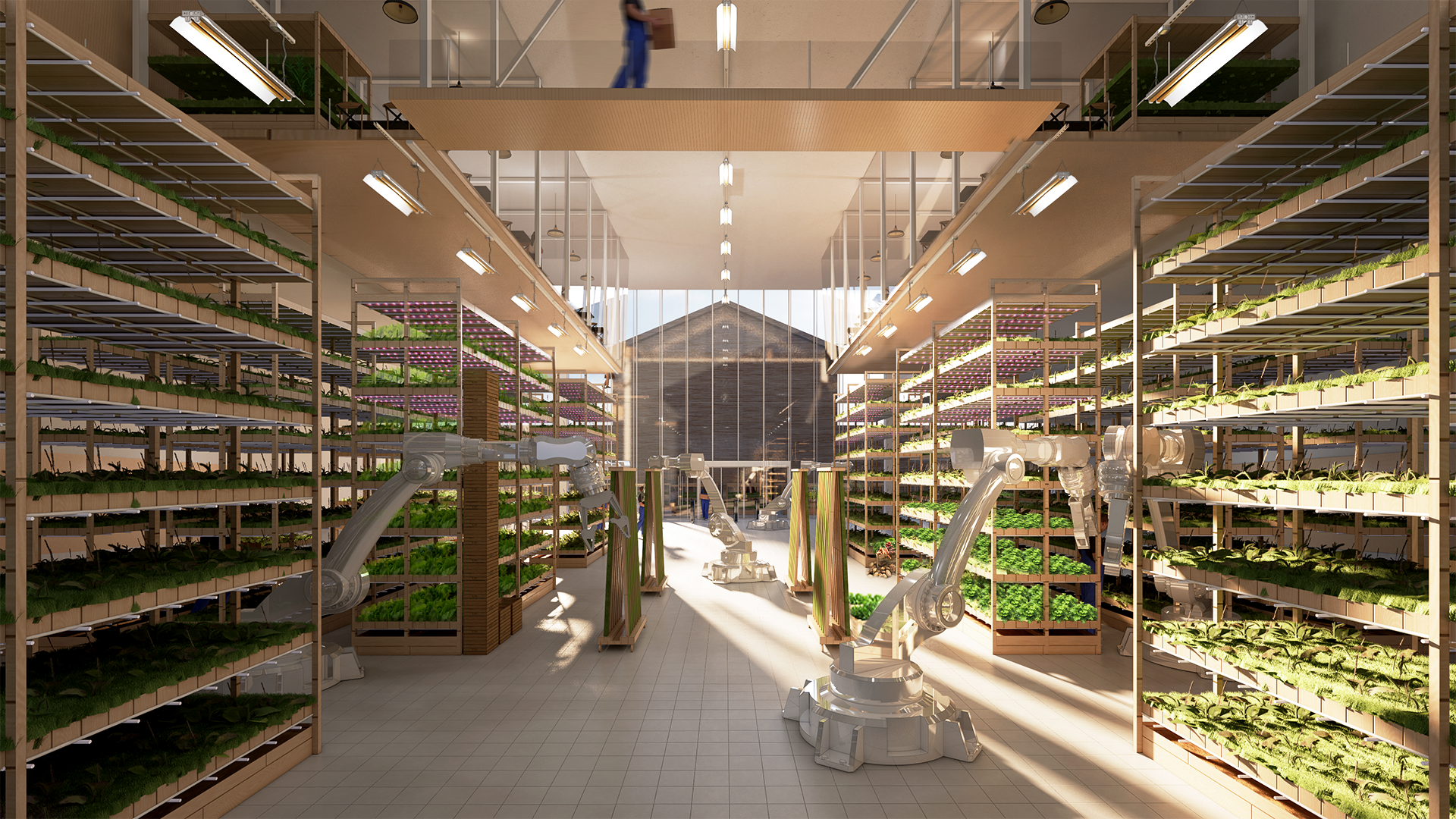
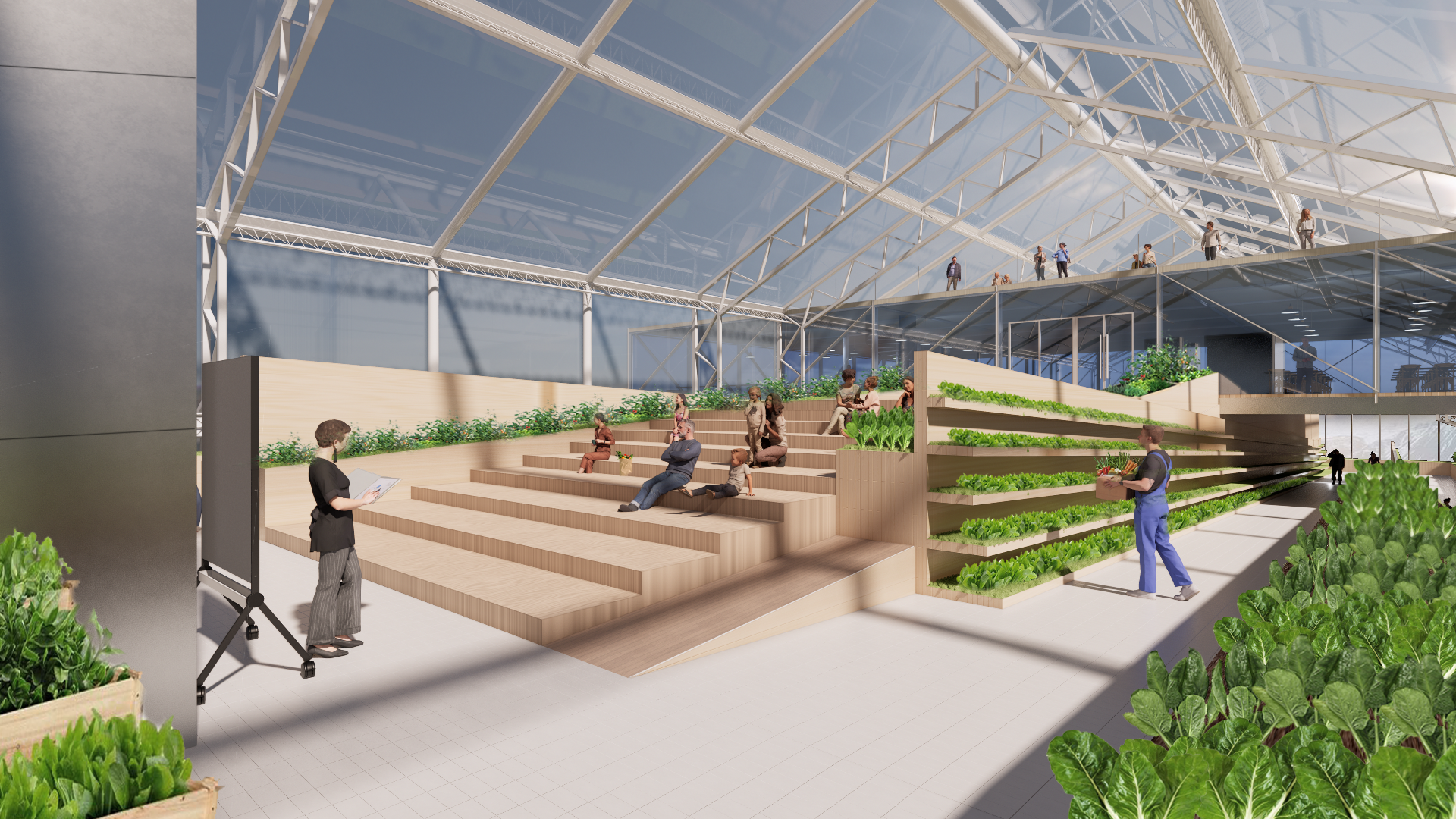
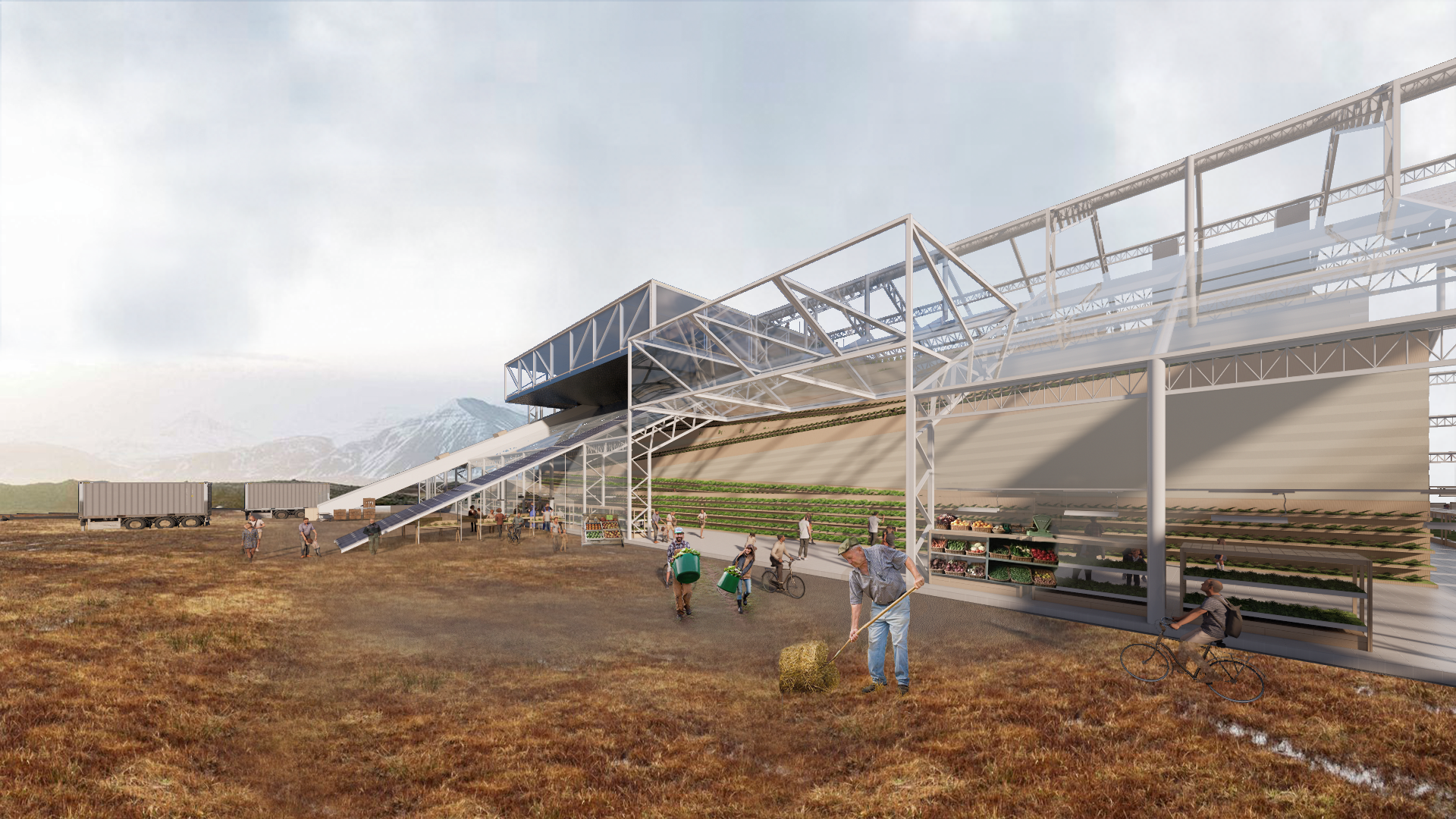
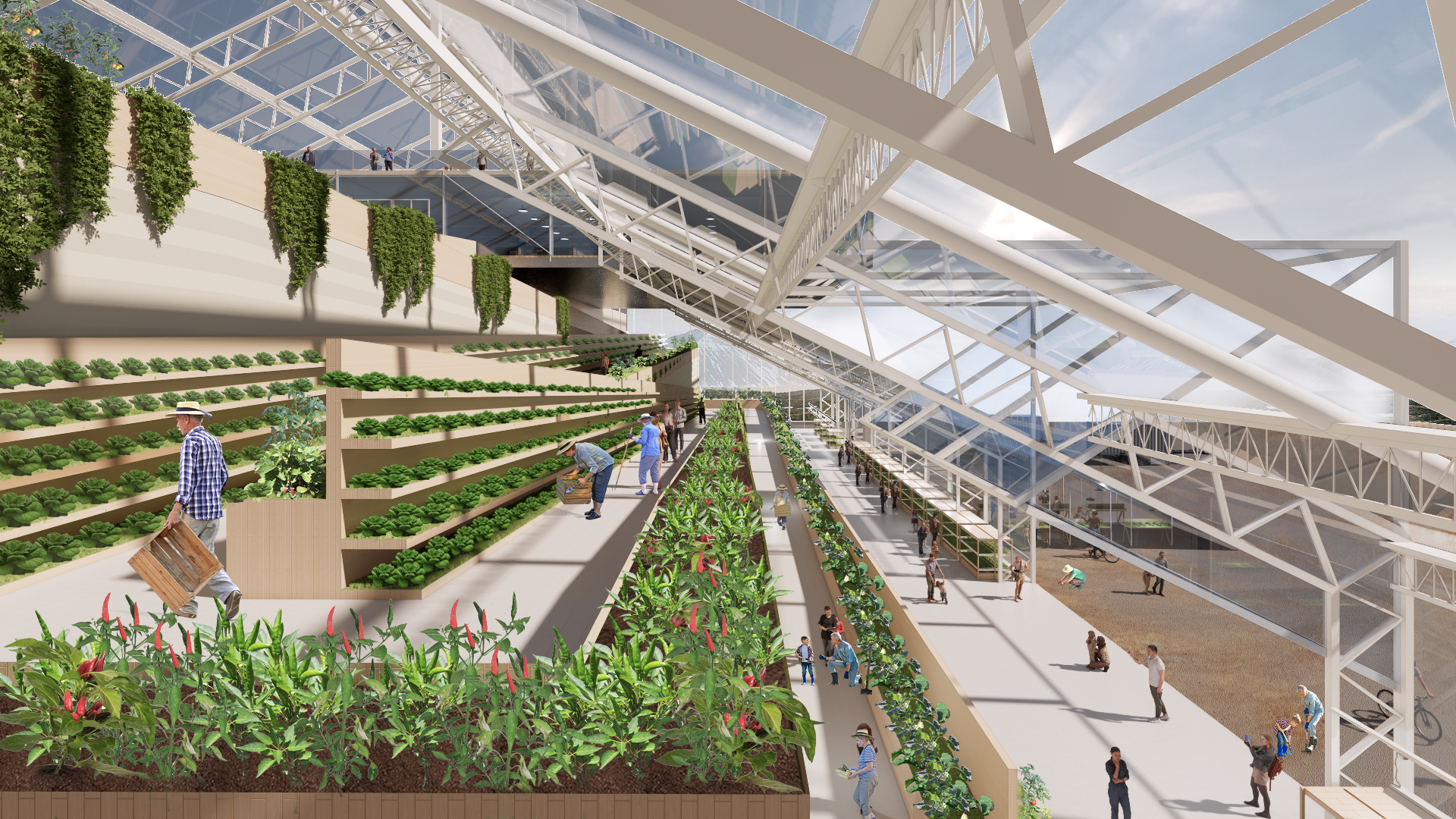
The Master Plan of Integrating Automated and Human-Centered Agriculture
Vieques, Puerto Rico
Vieques was colonized throughout the years, and the U.S. Navy used the island as a bombing range and test site for incidents, making much of the island unsuitable for agricultural production. The site is located next to a nursing home, and the project is geographically based, with the intention of creating a new type of farm suitable for local development. Human-centered harvesting and automated harvesting are two modes desired by farmers today, and the efficiency of automated.
Harvesting and the spatial experience of human-centered harvesting are both important conditions for a successful farm space. The project starts from the human scale, integrates the two modes in the spatial scale, studies the different combinations of greenhouse and warehouse, and finds the optimal solution within the site.Based on the typology study, the building form continues the local traditional eaves and adopts the form of glass box with better lighting. The meandering upward picking space, the open market, the restaurant on the top floor, and the efficient warehouse space are appropriately placed within the interior, providing a multifaceted farm space for locals and visitors alike.
SITE
Vieques Island's development is constrained by unexploded ordnance from past military use, rendering two-thirds of its territory uninhabitable and confining safe habitation and activity to a central area.This dependence on imported food, especially evident in Vieques where grocery stores lack stock after natural disasters, underscores the region's vulnerability, extending to the broader Caribbean.
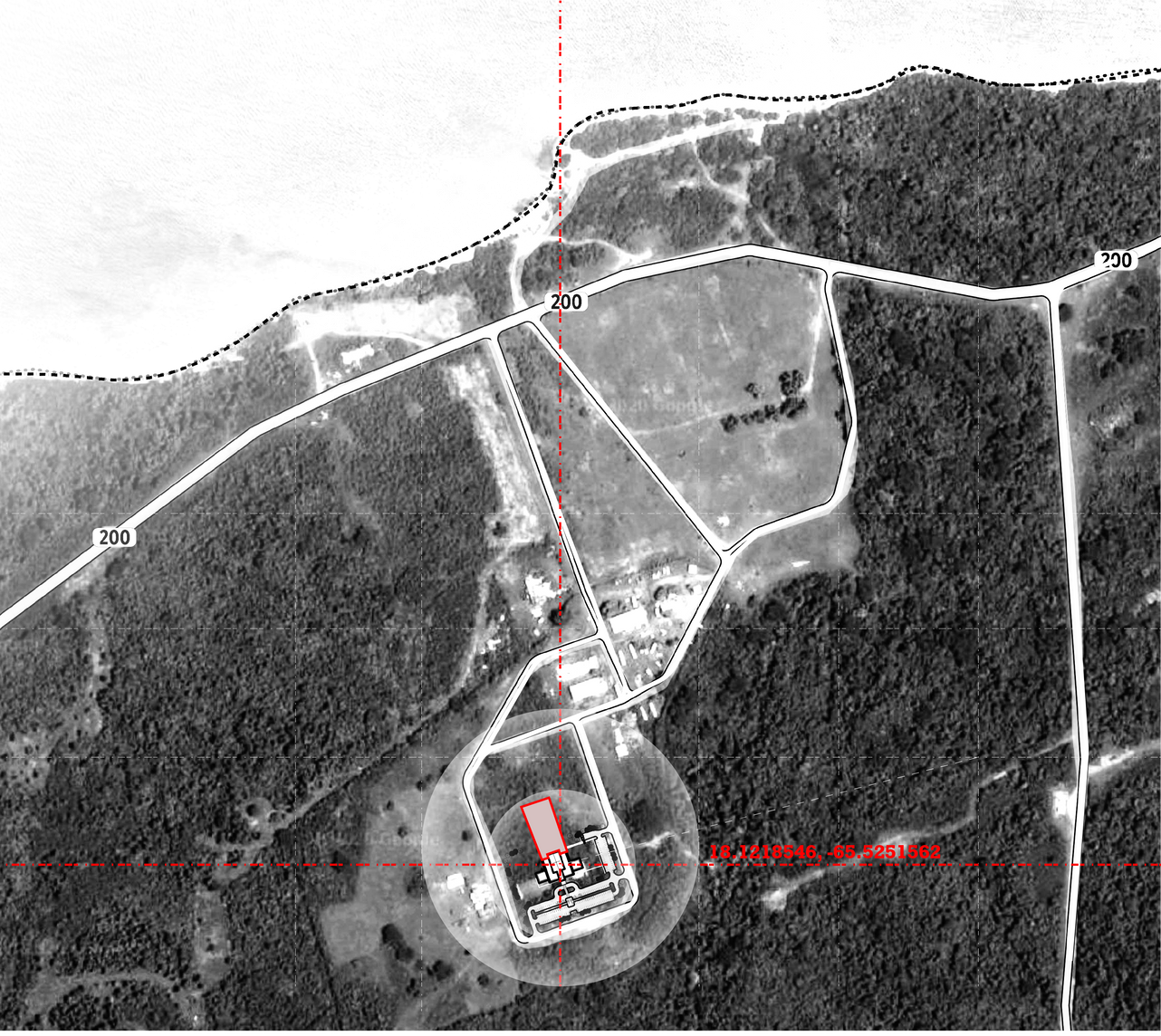
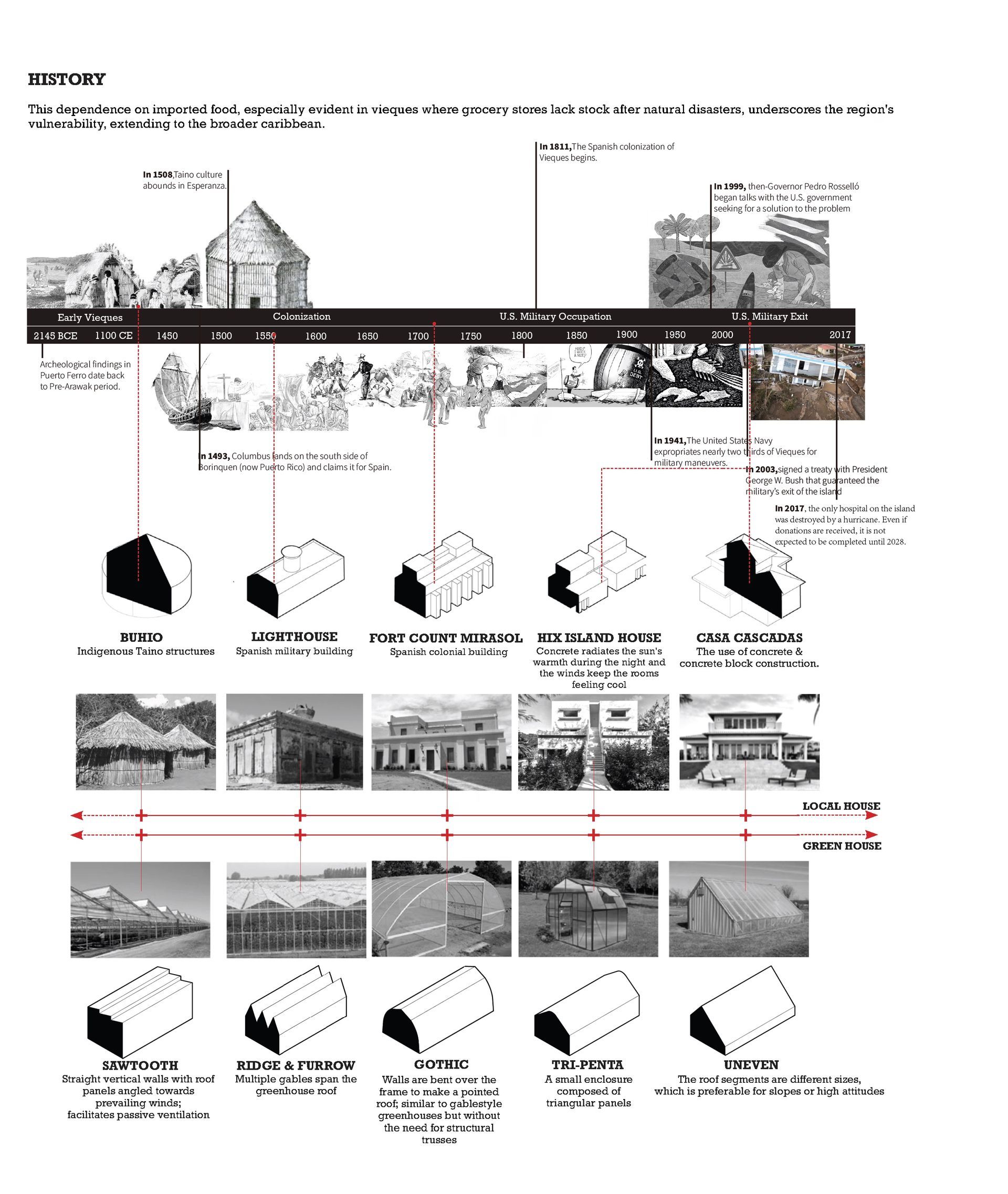
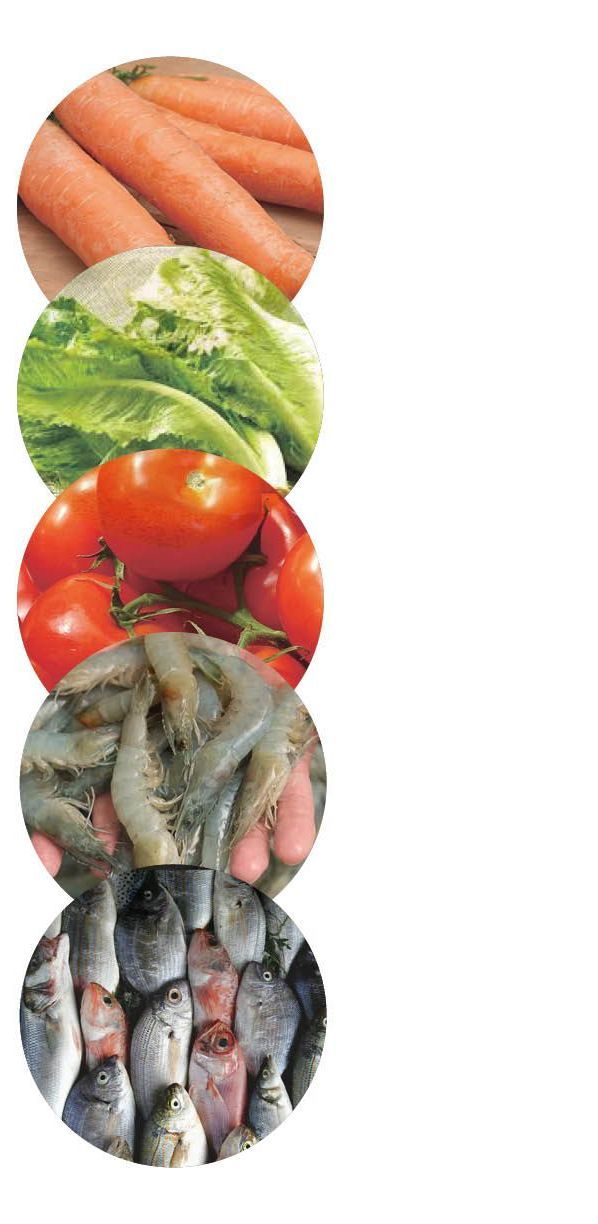
To enhance food security and reduce dependency on imports in Puerto Rico, the following agricultural strategies are recommended:
- Expand and support climate-controlled agriculture, such as hydroponics and greenhouse technologies, to increase the local production of smaller vegetables and tubers. This approach not only meets local demand but also opens avenues for exportation, thereby diversifying the economy.
- Implement initiatives to boost local fishing and agriculture by providing incentives, training, and resources to farmers and fishermen. This effort aims to reduce the 95% import rate of fish and increase the production of local foods, thereby strengthening the food supply chain against external shocks.
- Encourage the development and adoption of sustainable agricultural practices within the Master Plan for Sustainable Development of Vieques and across Puerto Rico. These practices should focus on optimizing water use, soil health, and crop diversity to ensure food production is resilient to climate change and natural disasters.New Paragraph
